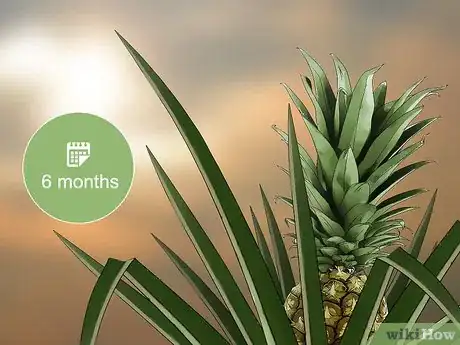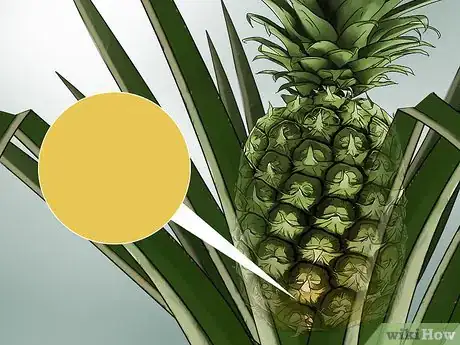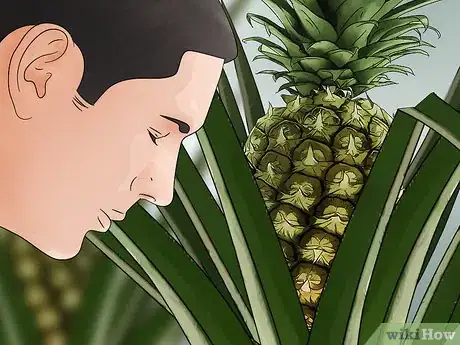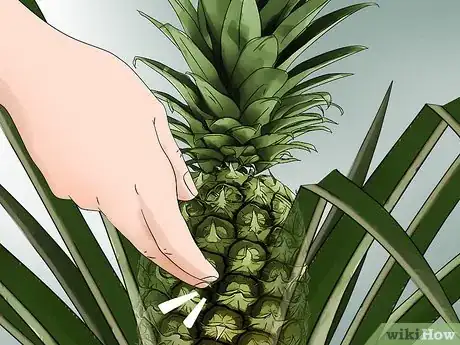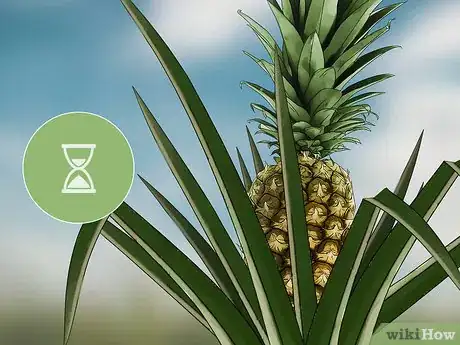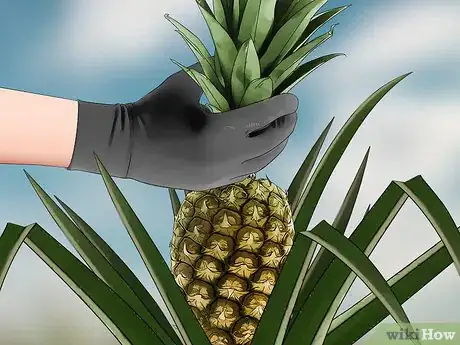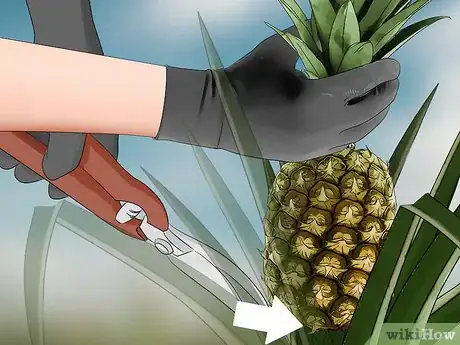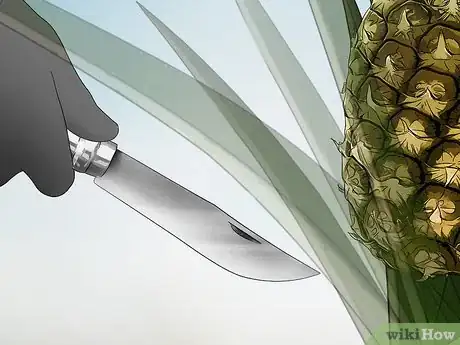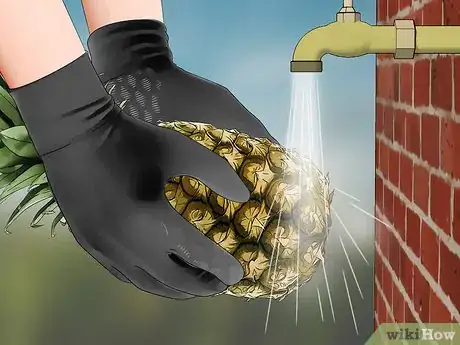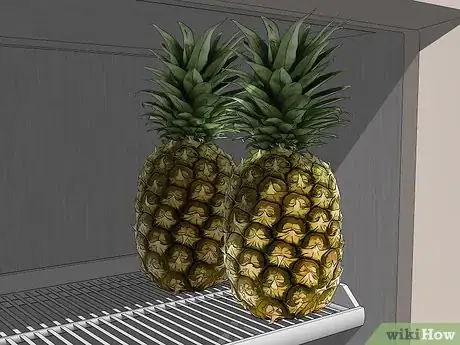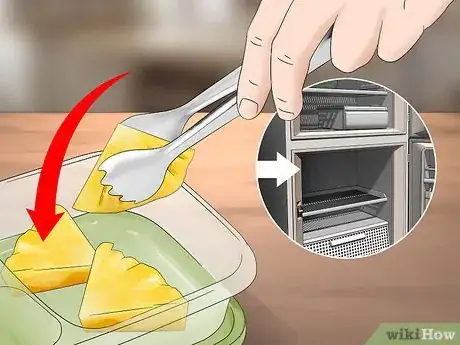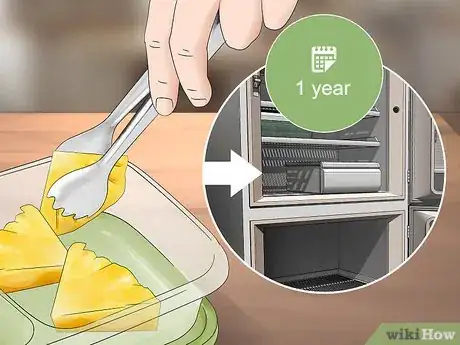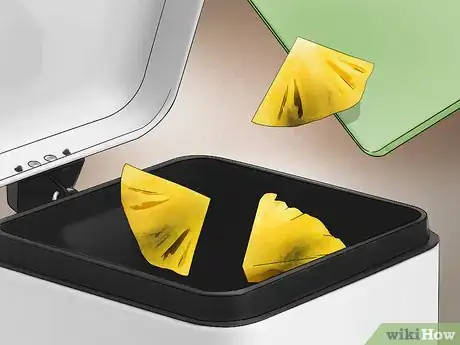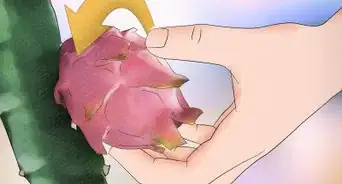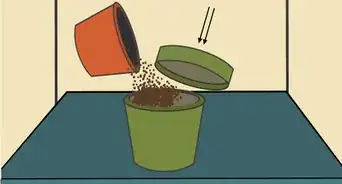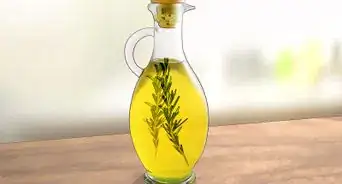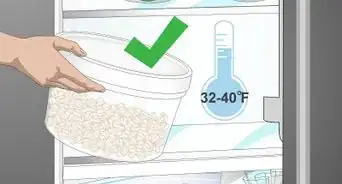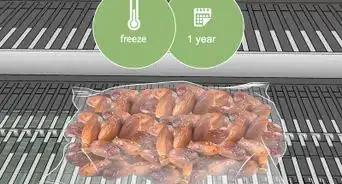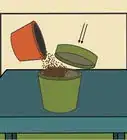This article was co-authored by Lauren Kurtz. Lauren Kurtz is a Naturalist and Horticultural Specialist. Lauren has worked for Aurora, Colorado managing the Water-Wise Garden at Aurora Municipal Center for the Water Conservation Department. She earned a BA in Environmental and Sustainability Studies from Western Michigan University in 2014.
There are 15 references cited in this article, which can be found at the bottom of the page.
wikiHow marks an article as reader-approved once it receives enough positive feedback. In this case, 98% of readers who voted found the article helpful, earning it our reader-approved status.
This article has been viewed 84,261 times.
Yum! Is there anything quite as sweet and juicy as a fresh, ripe pineapple? If you've grown one yourself or you simply want to try harvesting one in a field, it's a fairly simple process. Keep in mind, usually only 1 pineapple grows on a plant at a time. Look for ripeness, and then use shears or a sharp knife to cut the pineapple off the stem. Store pineapples at room temperature or in the refrigerator for a longer shelf life.
Steps
Checking for Ripeness
-
1Wait 6 months after the plant blooms. Usually, it takes about half a year for pineapples to fully develop after the plant blooms. Start looking for ripeness at about 5 1/2 months.[1]
- Keep in mind that the "bloom" becomes the pineapple. The pineapple will be covered in small blue flowers.
- If you're growing your plant from a pineapple top, it can take up to 2 years before a pineapple starts growing.
-
2Look for a color change from green to yellow-orange at the base. Unripe pineapples are green in color. When they begin to ripen, you'll notice a change near the base of the pineapple. It will start to turn yellow-orange, indicating its ready or almost ready for picking.[2]
- Pay attention when the fruit is at least 2/3 yellow. The fruit won't be ready to ripen until the majority of the fruit has turned yellow-orange. At this point, the pineapple is considered mature, though not necessarily ripe.[3]
- An overripe fruit will be turning brown or moldy. It may have soft spots on it, too.
Advertisement -
3Give the pineapple a good sniff to test for the pineapple scent. When a pineapple is ready to harvest, it will start to have a strong pineapple scent. You'll know it's ripe when you catch whiffs of it even when you don't have your nose right next to the pineapple.[4]
- Lean down a bit to smell your pineapple. The smell will be strongest at the base.
- If the fruit is overripe, it will start to have an alcohol-like or fermented fruit smell.
-
4Tap the side of the pineapple and listen to how it sounds. Firmly but gently tap the side of your pineapple your hand while listening closely to the sound it makes. If it sounds solid when you tap it, it's not quite ready for harvest yet.
-
5Wait until the pineapple is ripe to harvest it. Pineapples do not ripen too much more after they are picked. Therefore, if you want a tasty pineapple, you must wait until it is fully ripened to harvest it.[5]
- A pineapple may ripen a little after it is harvested if you keep it at room temperature. However, you should not count on this is as the primary method to ripen your pineapple. Let most of the maturing happen on the plant.
Removing the Pineapple from the Plant
-
1Wear gloves to protect your hands. The leaves of pineapples can be pretty sharp. Similarly, the rind of the pineapple can also be rough on hands. Try wearing a pair of gardening gloves to provide protection.
-
2Steady the pineapple with one hand. Hold on to the top of the pineapple with your non-dominant hand. You can grab the actual fruit or grasp the top of the pineapple between the leaves.[6]
- You want to keep the pineapple still while you cut it off.
-
3Use shears for an easy cut. One way to cut the pineapple off is to simply grab a pair of gardening shears. Cut the pineapple stem just below the pineapple, and catch the fruit as it comes off the plant.[7]
- Make sure to leave some stem behind so that the plant can regrow.
- If you need to, you can use both hands to operate the shears. Just try to catch the pineapple before it falls, as you don't want to bruise it.
-
4Try a sharp knife if you don't have gardening shears. A sharp knife will work about as well as gardening shears. Saw into the stem just below the pineapple until the pineapple comes free.[8]
- Be careful not to damage other leaves as you are cutting off the pineapple.
Storing Pineapples
-
1Wash the pineapples thoroughly. Give the pineapples a good rinse after harvesting. You'll rinse off any bugs or dirt that may still be on the pineapple. Shake off the excess water.[9]
- Air dry the pineapple on a clean kitchen towel.
-
2Place pineapples in the refrigerator to extend their shelf life. While a typical refrigerator is colder than what's ideal for pineapples, storing them in the refrigerator is still your best bet. It will slow down the decaying process.[10]
- Ripe pineapples do best at a temperature of 45 to 55 °F (7 to 13 °C), and the ideal fridge temperature is 36 °F (2 °C). To keep the pineapple a bit warmer, place it in the warmest part of the refrigerator. Use a thermometer to test the temperature in different areas, as models vary.[11]
- Pineapples will generally last 3-5 days in the fridge. On the counter, they'll last 1-3 days.[12]
-
3Store cut pineapple in the refrigerator. Once you slice into your pineapple, store the slices in an airtight container in the fridge. Fresh-cut pineapple will only last a couple of days.[13]
- To make it last a bit longer, pour a little orange juice over the fruit.
-
4Put slices in the freezer for up to a year. Cut the pineapple into slices without the eyes or core. Put them in airtight containers. You can also use resealable freezer bags for the pineapple.[14]
- While pineapple will stay safe longer than a year in the freezer, its quality will decline.
-
5Throw out pineapples that grow mold. It's not safe to eat the rest of the pineapple, even if the mold is only on 1 small part. Throw out the pineapple if it turns brown, goes mushy, or has mold on it.[15]
Community Q&A
-
QuestionDoes the plant produce more than one pineapple at a time?
 ChrisTop AnswererNo, after the plant blooms, it will take about 6 months for the pineapple to grow and ripen. In this time, only that single pineapple will grow on the plant.
ChrisTop AnswererNo, after the plant blooms, it will take about 6 months for the pineapple to grow and ripen. In this time, only that single pineapple will grow on the plant.
Things You'll Need
- Protective gloves
- Gardening shears
- Knife
- Airtight container
- Resealable freezer bags
References
- ↑ http://www.jacksonville.com/entertainment/home-and-garden/2017-07-01/garden-qa-how-do-i-know-when-harvest-pineapple
- ↑ http://postharvest.ucdavis.edu/Commodity_Resources/Fact_Sheets/Datastores/Fruit_English/?uid=50&ds=798
- ↑ http://www.jacksonville.com/entertainment/home-and-garden/2017-07-01/garden-qa-how-do-i-know-when-harvest-pineapple
- ↑ https://www.youtube.com/watch?v=8bghylWbo88&feature=youtu.be&t=48
- ↑ http://postharvest.ucdavis.edu/Commodity_Resources/Fact_Sheets/Datastores/Fruit_English/?uid=50&ds=798
- ↑ https://www.youtube.com/watch?v=qGy8IaVXrrQ&feature=youtu.be&t=47
- ↑ https://www.youtube.com/watch?v=qGy8IaVXrrQ&feature=youtu.be&t=47
- ↑ https://www.youtube.com/watch?v=_0_gS7S9-4Y&feature=youtu.be&t=33
- ↑ https://www.youtube.com/watch?v=nCXzWJ1o8pc&feature=youtu.be&t=152
- ↑ http://postharvest.ucdavis.edu/Commodity_Resources/Fact_Sheets/Datastores/Fruit_English/?uid=50&ds=798
- ↑ https://www.cnet.com/news/understand-your-fridge/
- ↑ http://www.stilltasty.com/fooditems/index/17993
- ↑ https://www.epicurious.com/ingredients/how-to-buy-and-store-pineapple-article
- ↑ http://www.stilltasty.com/fooditems/index/17993
- ↑ http://www.stilltasty.com/fooditems/index/17993
About This Article
To harvest pineapple, give the fruit about 6 months to ripen after the plant blooms. You can begin checking for ripeness after about 5 ½ months. To tell if the pineapple is ripe, check the bottom of the fruit for a change in color. The base of the pineapple will change from green to yellow-orange as it ripens. You should also notice a strong pineapple smell when you get close to the fruit, and you may feel a little bit of softness or give when you squeeze it. Once you’re ready to harvest the pineapple, put on some gardening or work gloves to protect your hands. Hold the top of the pineapple with your non-dominant hand and snip through the stem just below the base of the pineapple with a pair of sharp garden shears. If you don’t have shears, saw through the stem with a sharp knife. Rinse the outside of the pineapple to remove bugs and dirt and let it air dry. Eat the pineapple right away or store it in your fridge for up to 5 days.
